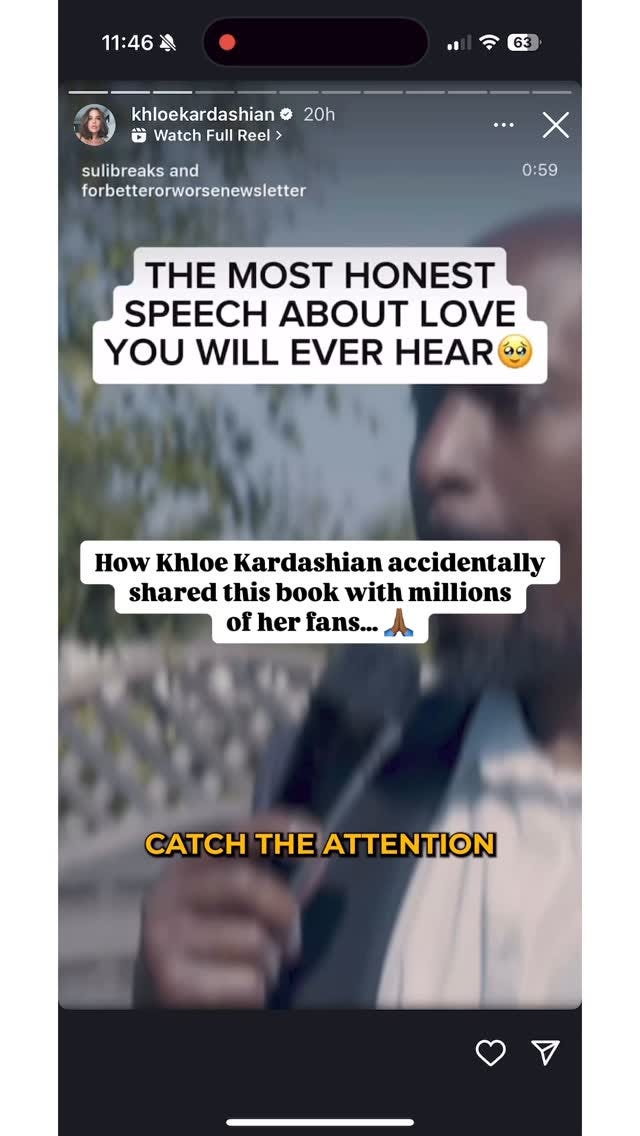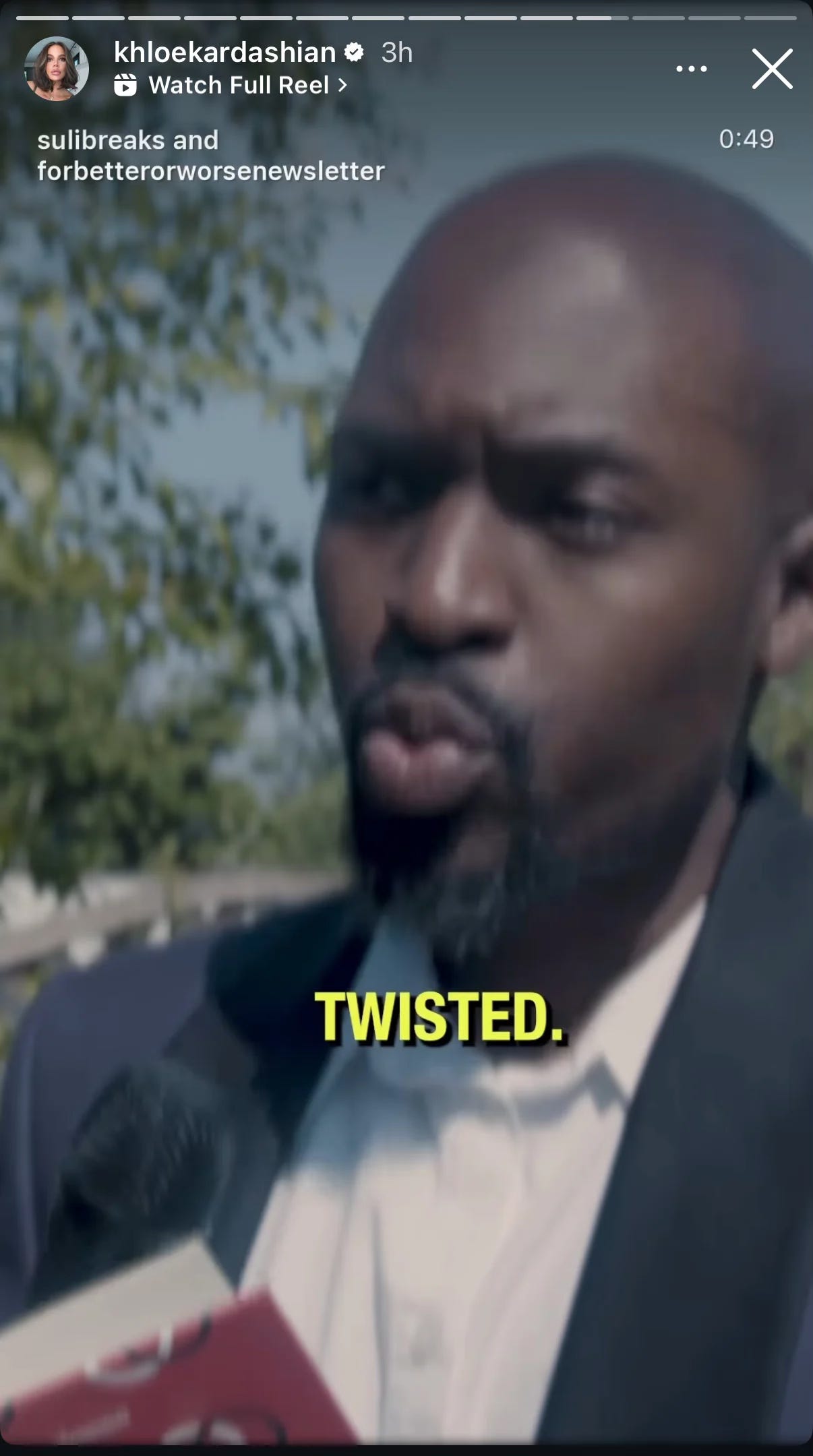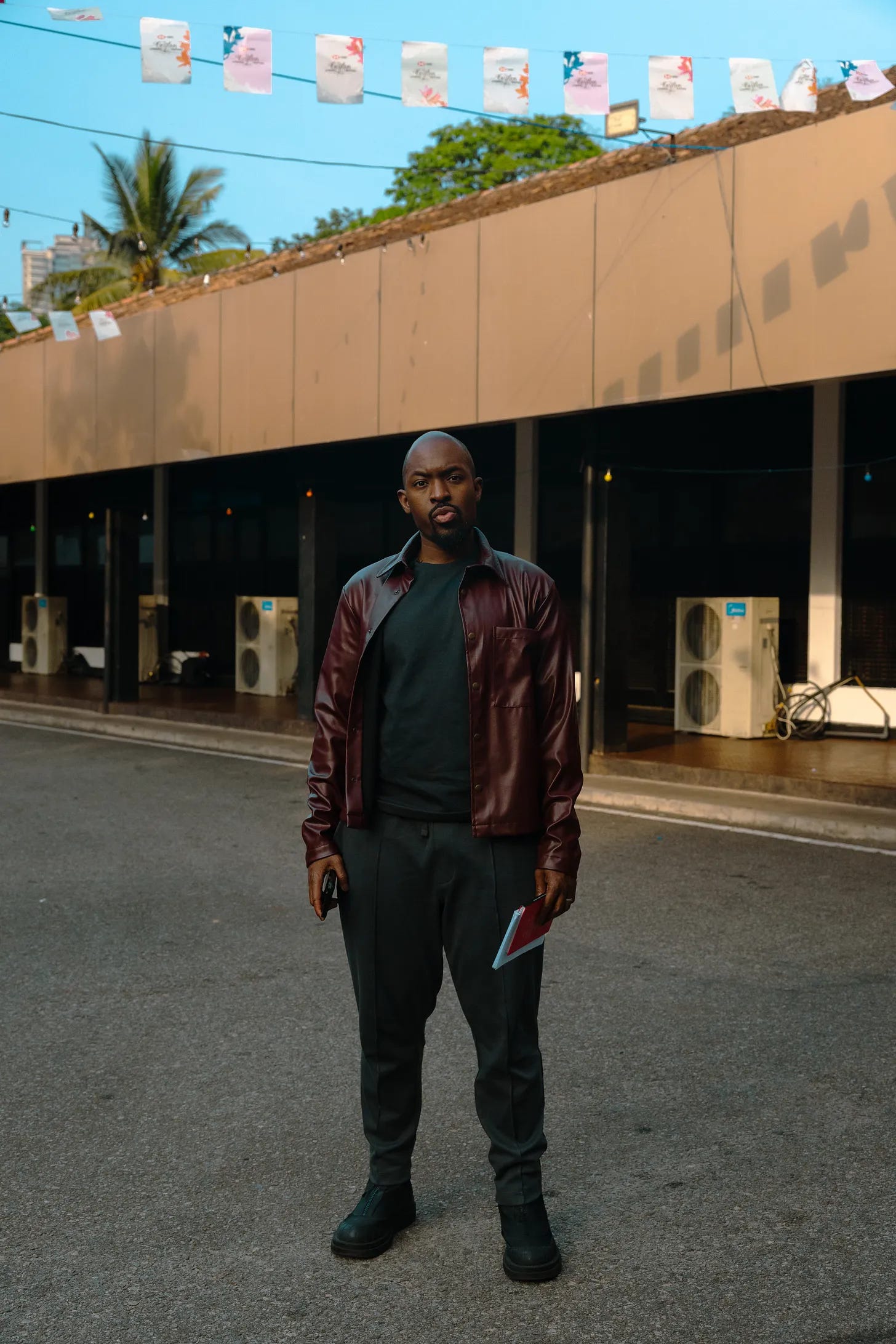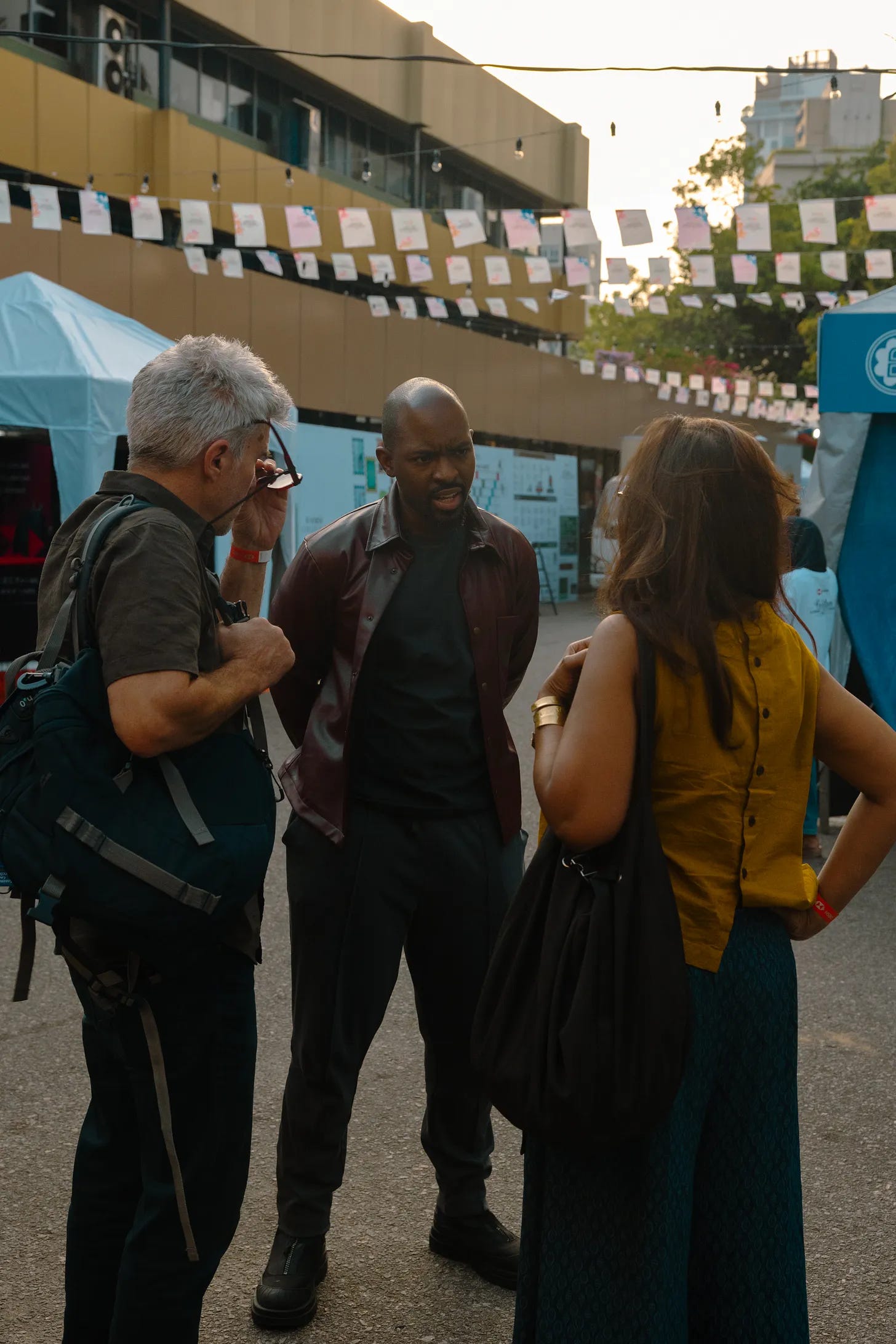On March 31, 2019, Ermias Joseph Asghedom, known professionally as Nipsey Hussle, was shot dead. He was one of my favorite artists—gone too soon.
This morning, as I wrestled with dumbbells (30kg ones, for any of my fellow gym rats!), Nipsey spoke to me:
'Cause one day we gon' all die Not a stranger to them hard nights But, when we look up, we see our sky We see potential in the moment We used to have to rent, now we own it No hesitation, we be on it We get paid to spend these midnights in Paris like we Owen Wilson, what a feelin', live in it 'cause you built it Ballin', spot it, shot it, killed it This Rollie is the symbol that represent my resilience The marathon's my leverage, negotiations with brilliance
For four minutes and fifty-three seconds, he was alive. His words resonated with me, like I was still twenty years old, dragging my feet down Wood Green High Street after an eight-hour shift in my dead-end job, stacking shelves.
Nipsey is dead physically, but lyrically, he lives forever. Art is immortal.
When I was about eight, my dad—who goes by the name Ojo (to his grandkids, because he refuses to let them call him Grandad)—made a movie. To be honest, I don’t talk enough about my dad’s exploits in this newsletter, but look out for more in the future. Ojo is the fuel behind my creativity. He’s directed films, written books, and invented things (very random things!). He hasn’t reached critical acclaim or made his billions yet, but each of these ventures is stored in the vault of my favorite childhood memories. It also explains a lot about me.
So, Ojo wrote and directed not one, but two films in his thirties. Their titles were Zebendu (a slang word for cocaine) and *Ghana Boys*. Before you try, you won’t find them. Sadly, they sit on a discarded VHS (remember those?) somewhere in West Africa. Alas, pre-YouTube and archives, these movies are lost in time. I would pay anyone who could somehow find them.
Ghana Boys was revolutionary in the '90s. It was Look Who's Talking (if you know, you know) meets City of God. A comedy about a day in the life of two friends, Fatso and Boozowero, who randomly get caught up in a robbery—or something gang-related, I can’t remember. The real genius behind the film? The entire cast was made up of kids. Me, my cousins, and all the neighborhood children, between eight and twelve years old, took the leading roles. To this day, I haven’t seen that concept adopted anywhere else. Don’t you miss those movies where babies or children took center stage?
My father’s other film, Zebendu, even made it to cinemas and had a sequel. Ojo is a visionary, too far ahead of his time, and we all know a genius is rarely recognized in his element.
About fifteen years ago, I found a dusty VHS of Zebendu and watched it with my cousins. It was brilliantly bad. We laughed at the poor acting, the unnecessarily dramatic music, and the ridiculous plot holes. Nothing compares to the experience of seeing the world through your father’s eyes. I saw the past through his artistic lens, and I understood him a bit better. It was like a time capsule transporting me into his world.
I met three out of four of my grandparents, but I met them as grandparents—responsible, wise, all-knowing adults. I used to scroll through old photo albums with my mum and watch her eyes light up. We saw the same pictures, but they told us different stories. She would take the time to tell me those stories—about people, places, and times I never got to appreciate.
We lost our house in London, and my mother didn’t mourn the house—she mourned the loss of her photo albums, her stories. Like Ojo’s films, those photos worked to pass on a message from one generation to another. On the other hand, my wife never met any of her grandparents. No photos, no stories—nothing but the anecdotes passed down by her parents.
This is why you should make art, even if nobody is watching. Paint, write, draw, take photos—because one day, they will tell your story to the next generation.
Sometimes, I watch my old YouTube videos and don’t recognize myself. Faces I haven’t seen in years come back to me in 720p, and it reminds me to pick up the phone and make a call.
Time is dishonest. We romanticize the past and forget things. Some things I will forget to tell my children, but I hope they find them in my poems, videos, and even this newsletter. Art is honest. Every day, my son tells me he doesn’t want to go to school, and I dread the moment he discovers my *Why I Hate School, But Love Education* video and uses my words against me. At least he will get an honest account from the younger Suli.
Keep everything—photo albums, random trinkets, heirlooms, your grandma’s ring. But also, make art. Art is personal, it’s raw, and it’s honest. I have a library filled with fears, worries, joys, heartbreaks, and everything in between for my boys to scour through when they get older (and bored enough).
Make the art for yourself. You will revisit these failed masterpieces and cringe, but so what? Many of our parents didn’t have the same time, resources, or opportunity. We live in an age where you can record your life and archive it free of charge—so why not?
I used to have a podcast, *7even Figures*, where I interviewed unlikely or underrepresented millionaires who shared the story of how they made their first million. (Disclaimer: I filmed the first episode in 2018, so I’m not saying, but I *am* saying, that I was one of the pioneers in the business podcast space.)
In 2020, at the height of lockdown, I invited Sam Mensah, a fellow Ghanaian and a very accomplished entrepreneur, onto my platform. Sam represented everything I wanted my platform to be—a young man who managed to take over the family business, elevate it to new heights, and support his family. We chopped it up, laughed, joked, and I soaked up game. We exchanged numbers and promised to connect on some other projects.
A few months later, I started getting tagged in videos of my podcast with Sam circulating online. Underneath the posts, the letters R.I.P. made me freeze.
I blinked at the screen for a few minutes before opening the comment section to see a flood of condolences. At barely 32 years old, Sam was dead.
Over the next few days, I felt overwhelmed by the reality of life and death. As more people shared the podcast, I felt a deep regret for Sam and his family. In fact, I regretted shooting the podcast—why did this need to serve as the final tribute to his life?
However, my perspective shifted when I got a message from a friend who had watched the episode. It was a simple remark: “I’m glad his children will be able to watch it when they’re older.”
I hope they watch it one day and are inspired by the brilliance of their father.
You will never be this exact age, with these exact thoughts. So why not capture and preserve them for the people who might need them years from now? The person who needs them might even be you.
The other day, I sat in my car frustrated. At the time, I was going through my old catalog while researching for my upcoming London show (buy your tickets now!). Randomly, I stumbled across the introduction to my project The Dormroom, and the words of my twenty-year-old self scolded me:
“I wrote this in a rundown apartment in Wood Green, with nothing but a dream. If I can make it, then you can make it. If they say you can’t attain it, tell them that I said you can. That Suli Breaks said so...”
In an instant, I remembered it all—from the beginning to where I am now, having so many of the things I once dreamed about.
I chuckled at the irony of my younger self giving me a pep talk.
But that is the power of art.
As I finished the draft for yesterday’s newsletter post, I packed up my laptop to leave the office when I noticed an unusual amount of traffic on one of my posts. Initially, I was too busy prepping for my seven-year-old son’s assessment meeting, so I briefly scanned the interactions and prepared to share the link to my book with those expressing interest. I tapped the screen once, twice—then froze. The account sharing my post ended in Kardashian, but I didn’t believe it until I clicked through and saw 308 million followers! Now, I’m not gonna pretend I keep up with the Kardashians religiously, but my wife made me sit through enough episodes. Also, I love the NBA—I’ve followed Lamar since his Clippers days—so I know who Khloé is. And now, a video of me reading an excerpt from my book was sitting on her Instagram story. You can watch it here.
Making art on the internet can feel like you’re writing to no one—95% of the time, you are. But that’s no reason to stop. Writing lives forever. You never know who might stumble across it or whose life it could change. It’s not about celebrity endorsements, but I’ve learned that books can take you across the globe, into the hearts of millions, or simply serve as a testament to how far you’ve come.
So make art, We have all the tools to express yourself, not for a profit, but for purpose. Create art and let it be your legacy, because even if the world doesn’t appreciate it, trust me someone will.
What could be a more powerful legacy?
I was recently in Sri Lanka (courtesy of the British Council) at their literary festival and we recorded a podcast out there!








There’s something so humbling about realizing the art we create today might outlive us—that the thoughts we capture, the memories we preserve, and the stories we tell could one day be the only bridge between who we were and the people we leave behind.
This hit especially hard because I’ve been guilty of silencing myself, thinking, “Who cares?” But art doesn’t need an audience to matter—it’s a time capsule for future versions of us, for the people who come after us, and sometimes for strangers who needed proof that someone like them existed.
Thanks for this reminder that creating isn’t about clout or going viral—it’s about leaving breadcrumbs of who we are, so even when we’re gone, some part of us stays alive.